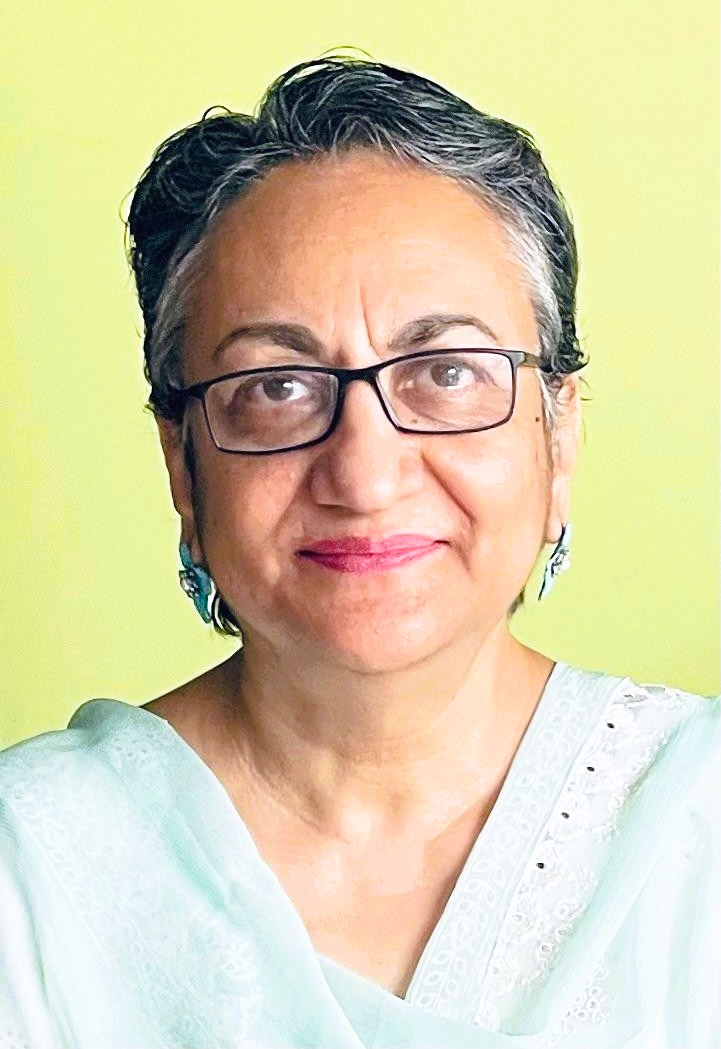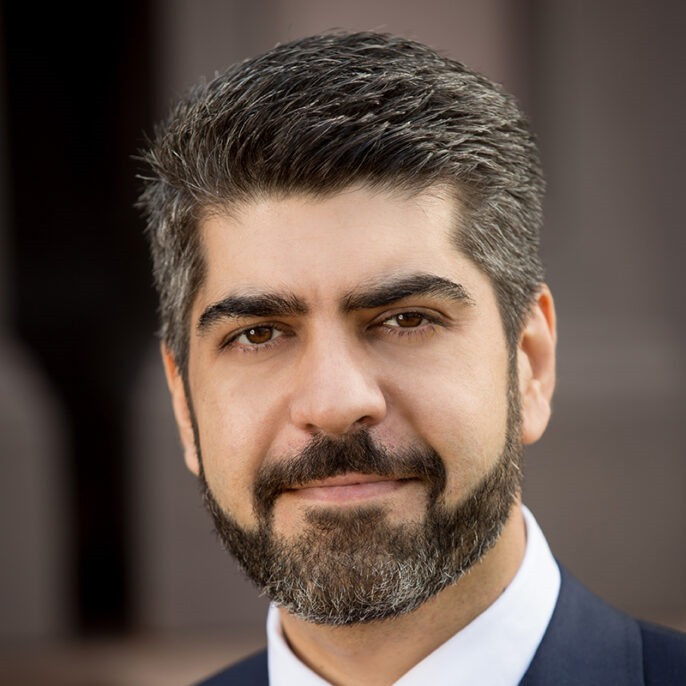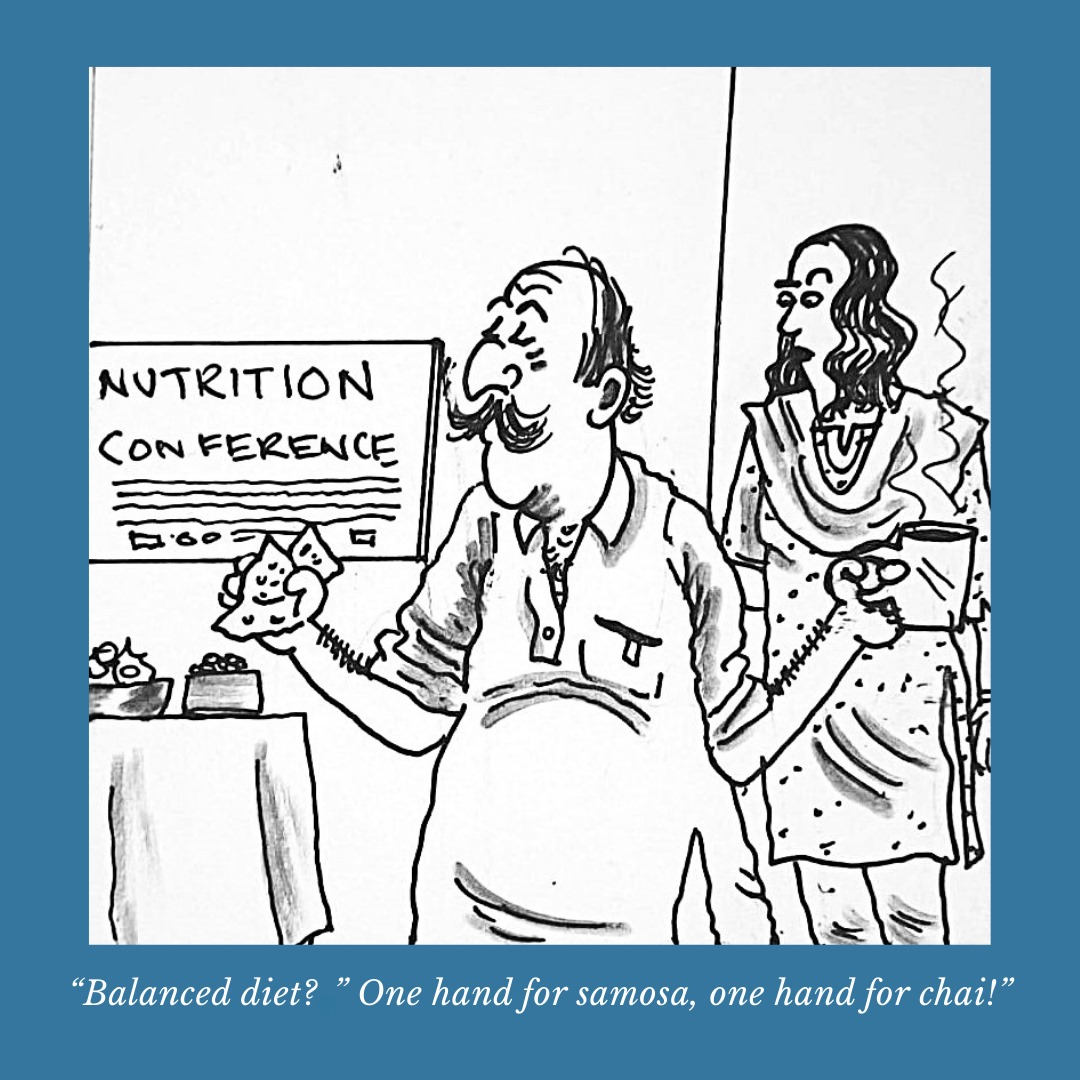Think Local, Act Global: A Conversation about the Climate and Water Crisis with Simi Kamal
October 6, 2025

The Outlier is back! We have a new look, new ideas and whole new host of unexpected insights to keep you informed about what is happening in the world around us. Each month, a specific theme will be followed. We are starting with AI for August, Nutrition for September and Climate Change and Water for October, with more to come. Hope you enjoy and join us in this exciting new chapter.
We are pleased to share our conversation with Simi Kamal, a pioneer and leading voice in water policy, environment, women’s rights and poverty alleviation. She is also the founder and Chairperson of Hisaar Foundation, which is holding its 7th Karachi International Water Conference this October.

Think Local, Act Global: A Conversation about the Climate and Water Crisis with Simi Kamal
Interviewer: Sabeen Rizvi

Simi Kamal is a geographer, water expert, climate change & environment professional, women’s rights campaigner and poverty alleviation specialist. She has founded several private sector and social sector organizations, networks and platforms. She has served on numerous international and national boards, commissions, committees and think tanks. She is the founder and current Chairperson of Hisaar Foundation and the co-founder of Panjwani-Hisaar Water Institute at NED University. She has previously been a member of the National Commission on the Status of Women and is a co-founder of Every Woman Treaty. She has served on the board of the International Water Management Institute, Sri Lanka for seven years as Vice Chair and Chair. She is board director of Khushhali Mictofinance Bank, a Trustees of WaterAid UK, and a Board member of CABI UK. She has led over 200 research studies and projects, is the author of several book chapters and is the recipient of several awards.
Q1. Could you tell us about how you became interested in geography and the study of water-related issues?
I had an aunt, Dr. Razia Afzal Niazi, who was a geographer and did her PhD at the University of Edinburgh in record time: one year and nine months. She worked on the fisheries of Pakistan, and I still have her original papers. She was a great inspiration, and in school I also had a wonderful teacher who got me interested in the subject. At Cambridge, the Geography Department was vibrant and diverse. My interest in water started there, especially through work on coastlines and wetlands.
When I returned to Pakistan, I saw how urgent the issues were: deteriorating water systems, urban challenges in Karachi, and gaps in water and sanitation. My consulting firm, RAASTA Development Consultants, did major projects on water, environment, climate change, and rural development. I saw water supply systems collapsing and governments not doing enough. A lot of my early work was in journalism and research, and then consulting in water and sanitation. That’s where the gaps became clear.
Q2. You started the Hisaar Foundation. Did you feel there was a gap even though projects existed?
Very much so. With RAASTA, we were doing major donor-funded projects, but I saw that funding often didn’t translate into real impact. That’s why I began thinking of a different approach, i.e. bringing people together to think outside the box. In 2000, when Thar suffered drought and no one was responding, I launched a fundraising campaign. Out of that grew Hisaar Foundation, which has since combined disaster relief with long-term water and development work. The experience of seeing what happened during the Thar drought convinced me that disasters will keep happening and we need institutions committed to water and relief work.
Q3. PHWI has also been set up. Was that to create higher-level research capacity in Pakistan?
Yes; for years I saw how fragmented things were: consultants working separately, international experts parachuting in with little local understanding, government bodies like WAPDA doing their own work, and universities producing little primary data. We felt it was vital to create a proper research and training hub. That’s how the Panjwani-Hisaar Water Institute (PHWI) at NED University came about. With strong support from Nadra Panjwani and others. Unlike other institutes, PHWI is designed to interact with industry, municipalities, and citizens, and to train a new cadre of young professionals who can handle 21st-century water problems rather than just build infrastructure.
Q4. Could you talk about the 7th Karachi International Water Conference: its beginning, impact, and what you hope to see in the future?
After about seven or eight years of Hisaar Foundation’s work, we realized we needed a platform to showcase, connect, and influence. That’s how the Karachi International Water Conference began: to bring academia, government, civil society, international thinkers, youth, and also women (who are underrepresented) together. It was originally the idea of our Board’s Chair at the time, Zohir Ashir, and although it seemed too big at the time, the first conference was a huge success.
Out of it came major outcomes, such as our Citizens’ Water Policy (2016), which was actually produced before the government’s own water policy. The conferences have also fed into our Think Tank on the Rational Use of Water, and vice versa. We’ve been able to introduce ideas like the
“Million Ponds Initiative” and frameworks for water justice. Our motto is to “think local, act global”, because grassroots solutions have the most power.
“Our motto is to “think local, act global”, because grassroots solutions have the most power.”
Q5. Given Pakistan’s dire forecasts and its “climate hotspot” status, what does the immediate future hold?
More of the same, unfortunately. Some of us have been warning about this for 25 years: climate change is real, and one of its biggest impacts is on water. We are seeing shifts in winds, monsoon patterns, rainfall. Karachi has had simultaneous rains from both east and west.
Floods are predicted, yet we are never prepared. Decisions often prioritize protecting the lands of the rich and powerful rather than communities. Pakistan is both politically and climatically unstable, and when you combine the two, you get the crises we face now. We can’t stop climate change, but we can radically change how we live: less waste, less plastic, less dependence on fossil fuels. It means lifestyle change at every level.
“We can’t stop climate change, but we can radically change how we live: less waste, less plastic, less dependence on fossil fuels. It means lifestyle change at every level.”
Q6. What do you think the failures have been on a policy level? What would an effective water and climate policy look like?
Our policies tend to be donor-driven, costly, and heavily infrastructure-focused. Governments resist low-cost, community-driven solutions like the Million Ponds Initiative. We need policies that integrate local knowledge, support adaptation, and promote resilience at every level, from households to municipalities.
Effective policy must also push corporations to change practices, and it must prioritize conservation, recycling, and reducing waste. Right now, we don’t see that appetite in government. So, the burden is on citizens and civil society to keep pushing.
Q7. What about individual attitudes and practices, can they make a difference?
Yes, they can. Every action matters. Cooking only what you eat, reducing food waste, avoiding plastics; these are simple but powerful actions. Of course, the largest burden lies with governments and corporations, but individuals can build the pressure from below. We say: think local, act global. That’s the only way to shift institutions and create real change.
Q8. Could you speak a bit about the gendered impact of the climate and water crisis?
In a patriarchal society, women always suffer more. In floods, their sanitation needs are ignored. If women are included at all on decision-making platforms, it is usually one or two as a token, while the women who are specialists or are known for speaking out are not invited. Women also carry family responsibilities but have little say in broader policy affecting families and the community.
That’s why at Hisaar Foundation, we’ve championed women’s leadership in the water sector. But going forward, we also need to mainstream youth. This is a world of young people, of AI and communications, and change may come in ways we older people cannot imagine.
“But going forward, we also need to mainstream youth. This is a world of young people, of AI and communications, and change may come in ways we older people cannot imagine.”
Q9. Since Pakistan has a youth bulge, what are your key messages for the young?
Don’t be shy to speak up. Challenge us, question why things are done a certain way, and put forward your own ideas. Use the tools you have: AI, communication platforms, to think differently, not just to repackage old ideas. We need many Greta Thunbergs in Pakistan.
Hisaar Foundation is always open to young people. We’ve mentored many who are now academics, journalists, and professionals. Youth must carry this forward: live simpler lives, stay connected to nature, and lead the change.
Q10. Do you think schools should have climate education?
For years we’ve visited schools, spoken to students, and provided materials. Climate and environment need to be a part of children’s education, not just a paragraph in a textbook. If young people volunteer to spread this knowledge, we have the resources to support them.
Q11. Is there a silver lining in the climate crisis for Pakistan?
Sadly, I don’t see one. The time for mitigation is gone. All we can do is adapt. The challenge is to survive differently, to live with fewer resources, less greed, less waste. Governments, unfortunately, often pursue projects that worsen the crisis, and history will judge them for it.
So, the only way forward is to act locally, show solutions that work, and pressure leaders to change. If our children are to have a life worth living, it will not be a “better” life, but a different life, one built on adaptation and survival.
“The time for mitigation is gone. All we can do is adapt. The challenge is to survive differently…”
Thank you so much for taking out the time to share your insights, we look forward to the 7th Karachi International Water Conference this year.
Sure, happy to do so.


